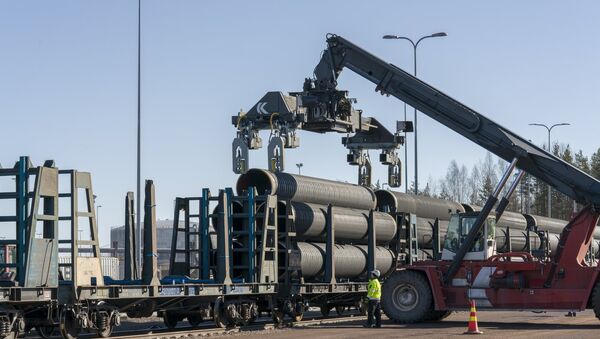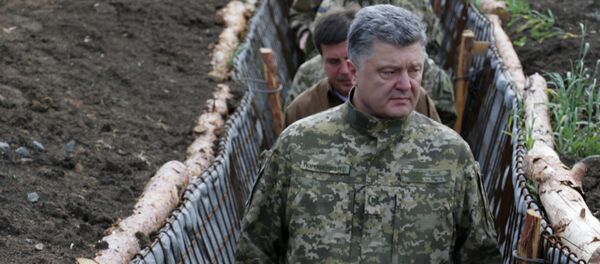'The German government, of course, took this criticism into consideration, but… it doesn’t change anything in Germany's approach to this project as economic. Nord Stream-2 is primarily an economic project, we have always said that, although it has a political component, namely the issue of the role of Ukrainian transit of Russian gas after 2019. We have always stressed that clarity is needed on this issue', Seibert said at a news briefing.
Earlier in the day, the Welt newspaper reported, citing diplomatic sources in the European Union that Berlin and Paris opposed the expansion of sanctions against Moscow over Russia's seizure of three Ukrainian vessels.
'Nord Stream-2 is primarily an economic project, we have always said that, although it has a political component, namely the issue of the role of Ukrainian transit of Russian gas after 2019. We have always stressed that clarity is needed on this issue', he noted.
The statement has come after Ukraine's Berdyansk and Nikopol gunboats and the Yany Kapu tugboat illegally traversed the Russian maritime border. According to Russia's Federal Security Service (FSB), the vessels navigated toward the Kerch Strait, the entrance to the Sea of Azov, and were arrested by Russia after failing to respond to a demand to stop. Over 20 Ukrainian sailors were also restrained.
READ MORE: Putin: Standoff Over Kerch Provocation, Aimed to Impose Martial Law in Ukraine
In response, the Ukrainian authorities ruled on 26 November to impose martial law in select regions of Ukraine that lie on the Russian border as well as the coasts of the Black Sea and the Sea of Azov for 30 days.
German Minister for Economic Affairs and Energy Peter Altmaier earlier stated that Germany believed that it was "right and necessary" to implement the Nord Stream 2 project while preserving Ukraine's role as a transit country.
Nord Stream is a gas pipeline connecting Russia and Germany with a capacity to pump 55 billion cubic meters of gas per year.



